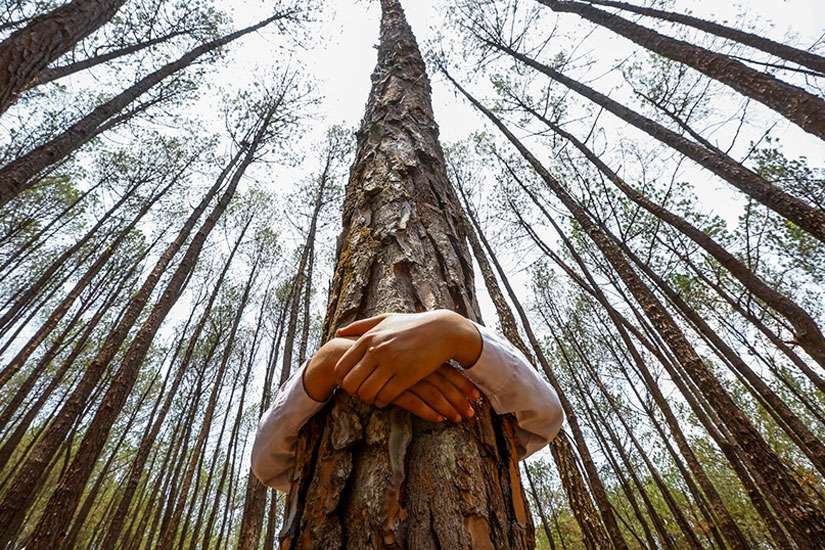He said, “Young people demand change. They wonder how anyone can claim to be building a better future without thinking of the environmental crisis and the sufferings of the excluded.”
He’s right. We do demand change and he knows we have been paying attention. It’s encouraging to think our Pope believes in our potential to be leaders. It reminds us to be the change that he sees us being.
We have been following the buzz on this encyclical just like everyone else. It’s great to see the Pope be upfront about the issue. People need to hear that it’s a pressing issue and it’s sparking conversations everywhere.
This letter wasn’t just for us as Catholics. It was for the whole world and that’s why everyone has something to say about it. People can’t deny that what he’s saying is true or that it doesn’t apply to them because we all live on the same Earth together.
It’s disappointing to look at how secular media has been covering the encyclical though. From what we’ve seen and read, they’re nitpicking. Some of us on the YSN team have studied Catholic social teaching at the university level. When we watch secular media choose one issue, like politics or the economy, it doesn’t represent what the encyclical actually is.
The encyclical is about our ecology. Grade 11 biology class taught us that ecology is about the study of interactions among organisms and their environment. Laudato Si’ isn’t just about driving policy and calling out to big business. It’s not just about how we treat nature either. It is about us as people and who we are in relationship with God.
That is probably the first thing we learned in catechesis. When the Pope talks about an “ecological conversion,” he commented on our interactions with everything in the world in relation to God.
The Pope isn’t teaching us anything new. When we looked at the encyclical together, we couldn’t help but say thank you for saying that again. It makes sense.
He talks about changing our daily lives in small ways. It is practical. These aren’t just big ideas. He gives us suggestions that we can actually put into practice, like talking to our parents about the environment, taking the bus, going to Mass and saying grace before meals.
It was also great to read how the Pope incorporated science in his encyclical. It shows us that he’s not writing this on his own. He talked to experts about real issues.
He talks about using science and technology to solve the world’s problems. He said we’re already equipped and all we need to do is believe in a happy future.
He talks about the importance of being a part of a community and not just being an individual. Our common home means everyone needs to care.
He also talks specifically about the issues we face as young people. How society’s breakdown has exposed our generation to social aggression, drugs and overconsumerism in general. The Pope said the digital world has stopped us from learning how to “live wisely, to think deeply and to love generously.”
But even with these challenges that we face, the Pope continues to talk about us in hope. He said, “Young people have a new ecological sensitivity and a generous spirit, and some of them are making admirable efforts to protect the environment.”
He’s saying there is a lot of work to be done, but it’s still cool to know the Pope is telling people to look to us. If he has this much hope in us, we have to take it upon ourselves and not let him down. We don’t have to leave this to the grownups and wait for our turn to lead. We have to be a part of the engagement and know what we are talking about right now.
We can’t wait for the next few weeks when the buzz has settled and the Church actually starts taking action because we want be right there with Francis.


